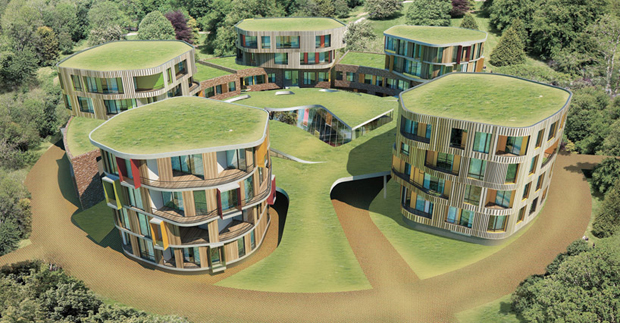
Atrium Studio designs for Moscow's Silicon Valley
Designers look to traditional townhouse style to house scientific brainboxes outside Russian capital
Nations love to have a few new architecture concepts to show off at fairs and festivals, it makes them look dynamic and ambitious. No wonder, then, that well-travelled phaidon.com readers may have spied this scheme on display in the Russian Pavilion at last winter’s Venice Biennale.
It’s Moscow outfit Atrium Studio’s entry in a competition to create living quarters for some of the staff of Skolkovo. For the uninitiated, Skolkovo sees itself as Russia’s answer to Silicon Valley, and is located just outside Moscow. Its proper title is the snappy Scientific Centre for Development and Commercialisation of New Technologies.
{media1}
Skolkovo itself is split into five zones, each concentrating on a different industry: information, biomedical, energy efficiency, nuclear, and space technologies.
Atrium – perhaps in an attempt to counter all this high-tech geekiness – drew inspiration from traditional townhouse vernacular for their entry. Though they did pay homage to the technopark’s zoning by having a quintet of ‘houses’, each with a green roof and all sharp corners shaved, standing around a central courtyard.
In total, the four-storey buildings would accommodate 45 apartments of resident scientists and their families, plus students and professors. But unlike conventional townhouses, these would feature panels of bright colour either side of the French windows, “because we like them,” says Atrium’s Maria Fadeeva, “and we understood that most of residents will be young and energetic.”
{media2}
Local firm Atrium feels this was one of the few occasions it got to show off its skills on a world stage. “Most of the big competitions which take place in our country are looking for foreign stars right from the beginning,” Fadeeva says – a complaint echoed among Chinese architects. “In the previous competition for the master-plan of Skolkovo, Russian practices were not invited at all. So when finally they found a place in this project for natives, it interested us.”